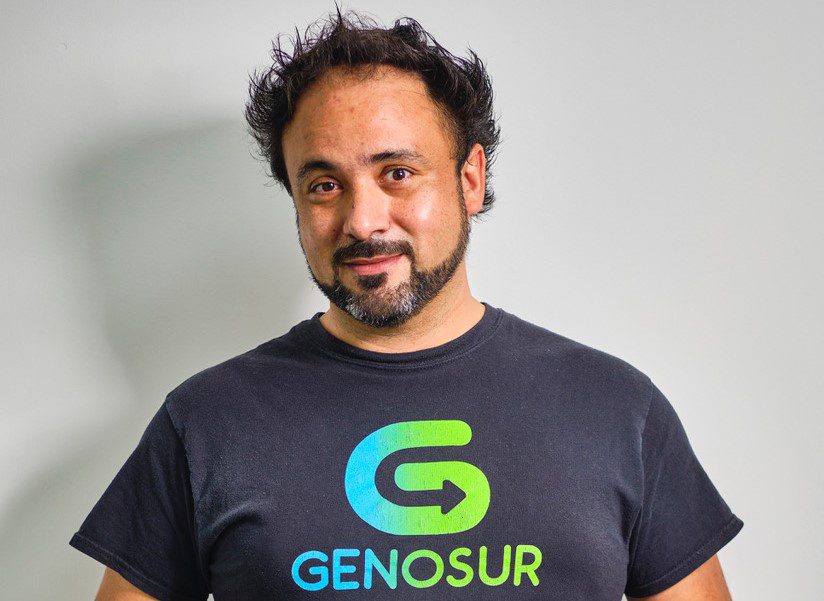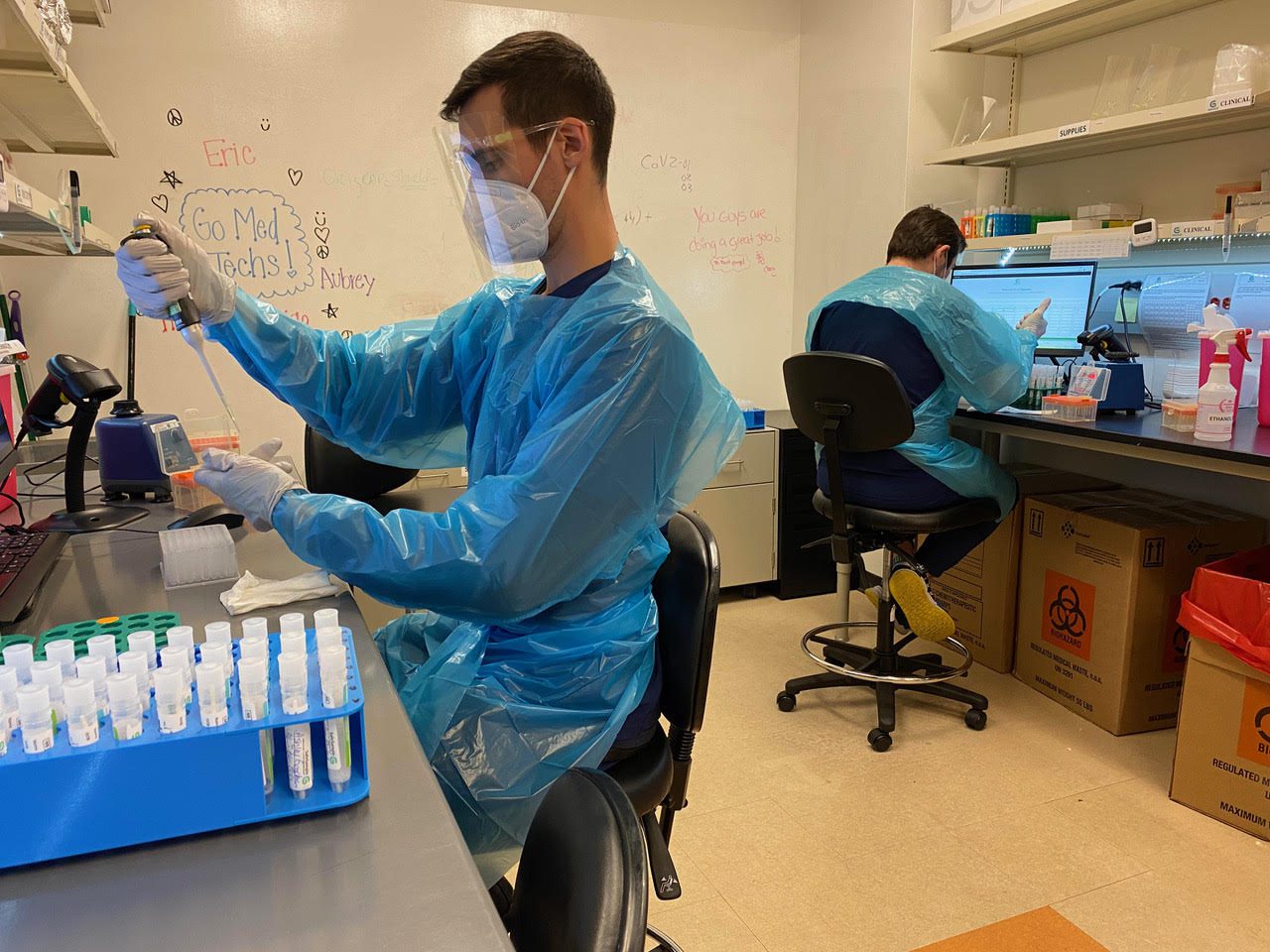Miami and Santiago, Chile-based Covid testing company GenoSUR and GenoBank.io, a Silicon Valley and Miami-based blockchain biometric startup, have teamed up to develop a Covid-19 test verification system. The result of the collaboration is what the companies are calling a “tamper-proof” Covid-19 test.
When lab technicians determine the results of a Covid-19 test, a QR code is generated. However, these QR codes are significantly more powerful than their QR cousins that show you a restaurant’s menu.
Daniel Uribe, GenoBank.io’s co-founder and CEO, explained to Refresh Miami that their QR codes represent a cryptographic signature verifying the test’s validity: “Our technology allows GenoSUR to certify the tests they administer without sharing the patient’s personal information with us. That means that the certification can be done using encrypted data.” This system stands in stark contrast to the easily-falsified PDFs that labs currently send.
“We try to set ourselves apart as an innovative company,” said Camilo Padron, GenoSUR’s Head of Business Development. “This partnership came together when we saw the opportunity to become even more innovative by using Genobank.io’s technology, which allows us to build something unique.”

Left to right, Sharon Holm, GenoBank.io COO, Camilo Padron, GenoSUR Head of Business Development, and Daniel Uribe, GenoBank.io Co-Founder and CEO. Shown at top of post: GeonSUR’s lab in Miami.
GenoSUR has made waves for its quick PCR tests. While patients typically have to wait up to a few days to receive the results of a traditional PCR test, GenoSUR’s solution provides results in just a few hours.
Matías Gutiérrez, CEO of GenoSUR, noted that many of the company’s customers are testing to fly. “Travelers need our services,” he said, since most countries require visitors and returning citizens to show a negative Covid-19 test to pass through the border. “They need the fast turnaround time,” Gutiérrez explained, because of the time sensitivity of travel, and the vast amount of cancellations and re-bookings due to erratic airline scheduling procedures.

Matias Gutierrez, CEO of GeonSUR
The problem is that, according to GenoSUR and GenoBank.io, there is currently no way to verify if Covid-19 test result paperwork is genuine. Gutiérrez underscored that “all of these travel restrictions have been put in place” to trace, monitor, and mitigate the spread of the virus. But “if someone is lying, the whole system falls apart,” he said.
Uribe adds: “One of the main reasons we got selected to partner with GenoSUR is because we do not break confidentiality between the lab and the patient.” Confidentiality is an advantage of leveraging blockchain technology, which ensures anonymity while also securely proving authenticity. This is similar to the technology Refresh Miami reported last May, when GenoBank.io made a foray into Miami by partnering with a top medical researcher to develop a blockchain-powered platform for sequencing SARS-CoV2.
While the companies both expect Covid-19 testing to continue at least for the next few years, the ultimate goal is even broader.
“This is a good experiment to see how different immigration authorities and airports find value in verifying tests,” Gutiérrez said. “But in the future, we’re also interested in seeing how we can monetize the ability to have the patient use a cryptographic signature to authorize test results. There are a myriad of various opportunities.”
Uribe noted that there also might be appetite to be able to verify the authenticity of vaccine records in the near future. “This could just be the beginning.”
READ MORE ON REFRESH MIAMI:
- Two Silicon Valley genomic data experts announce partnership in Miami
- South Florida startup DMEconnected makes buying medical equipment a breeze
- Healthcare-focused venture fund Baleon Capital joins the mix in Miami
- How Covid has changed healthcare for good
- AI, climatetech and healthtech reign supreme on Day 1 of eMerge Americas’ 10th anniversary - April 18, 2024
- Brought together by tech, kept together by culture: Miami’s protagonistic role in LatAm’s startup story - April 15, 2024
- New World Angels launches Innovation Fund to write pre-seed checks - April 12, 2024





